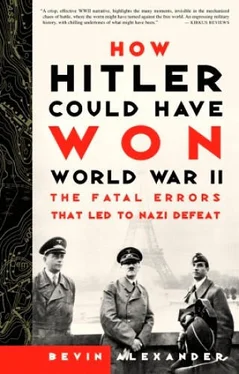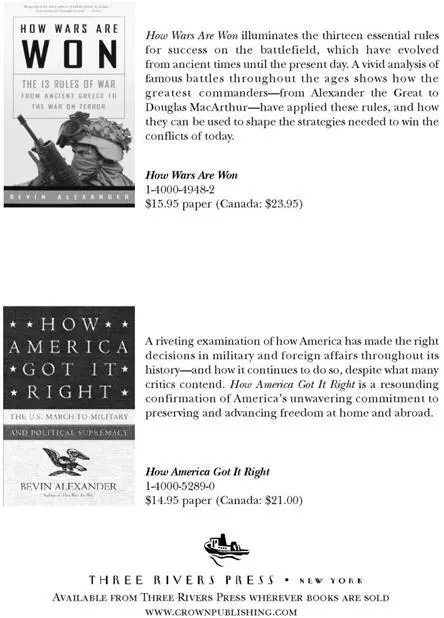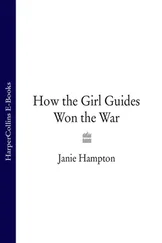Bevin Alexander - How Hitler Could Have Won World War II
Здесь есть возможность читать онлайн «Bevin Alexander - How Hitler Could Have Won World War II» весь текст электронной книги совершенно бесплатно (целиком полную версию без сокращений). В некоторых случаях можно слушать аудио, скачать через торрент в формате fb2 и присутствует краткое содержание. Город: New York, Год выпуска: 2007, ISBN: 2007, Издательство: Three Rivers Press, Жанр: История, на английском языке. Описание произведения, (предисловие) а так же отзывы посетителей доступны на портале библиотеки ЛибКат.
- Название:How Hitler Could Have Won World War II
- Автор:
- Издательство:Three Rivers Press
- Жанр:
- Год:2007
- Город:New York
- ISBN:978-0-307-42093-0
- Рейтинг книги:4 / 5. Голосов: 1
-
Избранное:Добавить в избранное
- Отзывы:
-
Ваша оценка:
How Hitler Could Have Won World War II: краткое содержание, описание и аннотация
Предлагаем к чтению аннотацию, описание, краткое содержание или предисловие (зависит от того, что написал сам автор книги «How Hitler Could Have Won World War II»). Если вы не нашли необходимую информацию о книге — напишите в комментариях, мы постараемся отыскать её.
With an acute eye for detail and his use of clear prose, acclaimed military historian Bevin Alexander goes beyond counterfactual “What if?” history and explores for the first time just how close the Allies were to losing the war. Using beautifully detailed, newly designed maps,
exquisitely illustrates the important battles and how certain key movements and mistakes by Germany were crucial in determining the war’s outcome. Alexander’s harrowing study shows how only minor tactical changes in Hitler’s military approach could have changed the world we live in today.
How Hitler Could Have Won World War II Why didn’t the Nazis concentrate their enormous military power on the only three beaches upon which the Allies could launch their attack into Europe?
Why did the terrifying German panzers, on the brink of driving the British army into the sea in May 1940, halt their advance and allow the British to regroup and evacuate at Dunkirk?
With the chance to cut off the Soviet lifeline of oil, and therefore any hope of Allied victory from the east, why did Hitler insist on dividing and weakening his army, which ultimately led to the horrible battle of Stalingrad?
Ultimately, Alexander probes deeply into the crucial intersection between Hitler’s psyche and military strategy and how his paranoia fatally overwhelmed his acute political shrewdness to answer the most terrifying question: Just how close were the Nazis to victory?
Why did Hitler insist on terror bombing London in the late summer of 1940, when the German air force was on the verge of destroying all of the RAF sector stations, England’s last defense?
With the opportunity to drive the British out of Egypt and the Suez Canal and occupy all of the Middle East, therefore opening a Nazi door to the vast oil resources of the region, why did Hitler fail to move in just a few panzer divisions to handle such an easy but crucial maneuver?
On the verge of a last monumental effort and concentration of German power to seize Moscow and end Stalin’s grip over the Eastern front, why did the Nazis divert their strength to bring about the far less important surrender of Kiev, thereby destroying any chance of ever conquering the Soviets?



![Джонатан Димблби - Barbarossa - How Hitler Lost the War [calibre]](/books/385421/dzhonatan-dimblbi-barbarossa-how-hitler-lost-the-w-thumb.webp)









